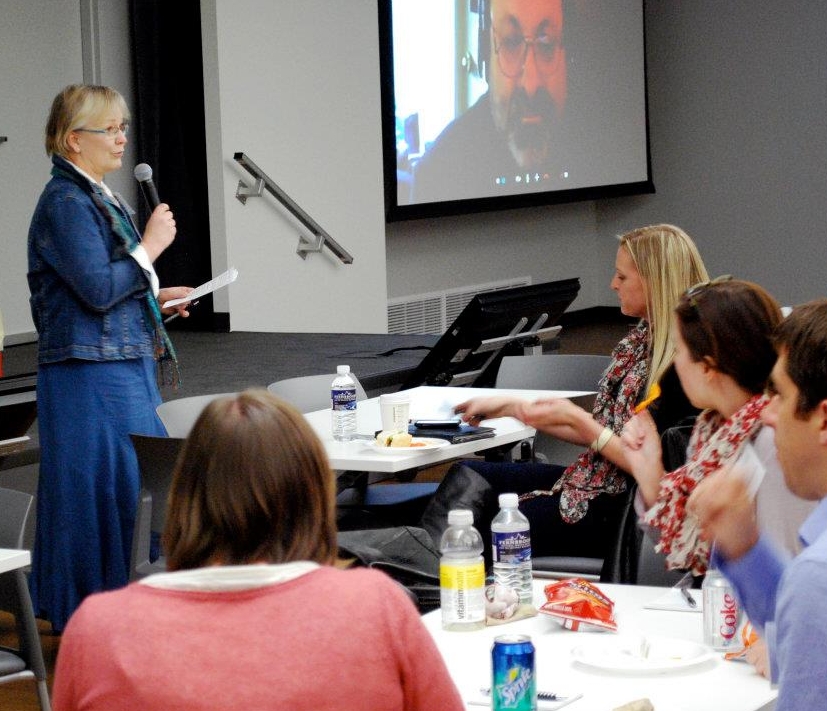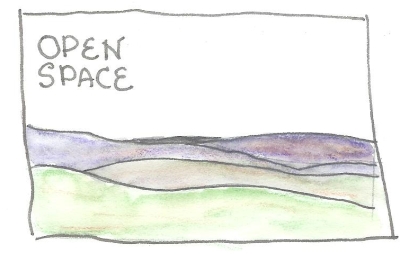by Susan Johnston | Apr 8, 2013 | Build your own skills, Rants, Ramblings and Riddles |
Originally posted at the International Association Of Coaching
 For over 30 years, I’ve been a communication professional. Educated, mentored, accredited and experienced in every form of communication, I looked like the real deal. Yet it wasn’t until I trained as a coach that I truly learned to communicate.
For over 30 years, I’ve been a communication professional. Educated, mentored, accredited and experienced in every form of communication, I looked like the real deal. Yet it wasn’t until I trained as a coach that I truly learned to communicate.
I was working in corporate communication when I had the disturbing realization that how people talk to each other at work has more impact than the formal programs to which I was devoting my career. Fortunately, I met a coach. Being coached gave me an appreciation for deliberate and conscious conversation. Coach training gave me the tools. It forever changed the way I talk with everyone.
I learned to look beyond the story.
In earlier days, when I talked to people, I looked for the story. For daily news, it had to inform or entertain. For organizations, it had to line up with some corporate objective. Today, whether or not I am coaching, my focus is on the person behind the story. The more I focus on the person, the more interesting our conversation becomes. My attention builds the trust that helps people feel comfortable sharing their stories.
In coaching, I learned that the story someone brings me – the “presenting problem” – is not always the real issue. Probing for clarification has been just as useful in revealing what’s really going on with colleagues, family members and acquaintances as it has for clients. (more…)
by Susan Johnston | Feb 25, 2013 | Uncategorized |

I just announced that the next session of my Speaker Circles program is open for registration. Having the program ready is, on its own, enough to make me joyful.
But it gets better.
One of the members of the program’s Beta group, calls my speaker coaching “an introvert’s secret weapon.”
She wrote, “Sue’s helped me overcome my timidness in personal and group discussions without making me feel like I have to act like someone I’m not.”
As a coach, it’s always gratifying to learn that someone has gained from our work together. And it’s nice to hear that program does what it is supposed to.
More than that, it reinforces my strongly held belief that coaching is a true collaboration.
While I may or may not be “an introvert’s secret weapon,” she’s definitely “a coach’s ideal client.” She lets herself try new things even when they’re deeply uncomfortable. When I first met her, speaking was very uncomfortable. (We have the video to prove it.) Still, she was willing to try new things, to test her limits, to override the inner critic that keeps us where we are. She trusted an inner voice that told her she had something important to say. And she does. And now people are hearing it at networking and professional development events throughout our region.
Passion and purpose helped her expand her comfort zone, along with a little help from her coach and a friendly audience of other learners. (more…)
by Susan Johnston | Nov 25, 2012 | Uncategorized |
 Organizers of Trends 2013, the IABC Canada Business Communicators Summit, held November 1-3 in Ottawa, aimed to inspire communicators with ideas we could use in the immediate future, not some distant someday. That’s what they delivered. A look at tweets the conference inspired shows I’m not the only one who thought so. Epilogger #cdnIABC2012
Organizers of Trends 2013, the IABC Canada Business Communicators Summit, held November 1-3 in Ottawa, aimed to inspire communicators with ideas we could use in the immediate future, not some distant someday. That’s what they delivered. A look at tweets the conference inspired shows I’m not the only one who thought so. Epilogger #cdnIABC2012
The weekend was designed to provoke conversation. The opening night Silver Leaf Awards banquet had a “Mad Men” theme. Some folks thought it was hilarious. Others considered a look backwards to the world of “spin” a poor choice for celebrating the best in Canadian communication. Either way, it set us up for the weekend talking about branding and ethics and the changing face of our industry.
Fascinating keynote sessions . . .
Saturday’s mix of keynotes, panels and breakout sessions, began with a talk by Darrell Bricker, CEO of Ipsos Public Affairs, specialists in social research and reputation. Anticipating dry pollster babble, the audience was surprised by a lively session in which Bricker used research data to show us how Canada is changing. As a group, we got every answer on his quiz wrong. We also discovered (or rediscovered) that numbers tell a story and research can be fun. We headed into the rest of the conference with the realization that many of the notions we hold – as communication professionals and as citizens – are out of date. What other “truths” might we need to give up?
IABC Newfoundland colleague Martha Muzychka shares her impressions and more details on Bricker’s talk in this excellent summary.
The second keynote of the day came from Jennifer Stoddart, Privacy Commissioner of Canada. She referred to a “tsunami of personal information” that has spawned a $30-billion industry to manage, use and protect it. Stoddart is determined that her organization make a difference. Its monitoring and investigations have forced Google, Veterans Affairs, Revenue Canada and many other organizations to change their practices after their actions brought protests from consumers and citizens.
What does privacy regulation mean for communicators? “Build privacy into the front end of every change. Don’t wait to be brought in to clean up,” says Stoddart. To help us, her department has a template for developing a privacy policy. (more…)
by Susan Johnston | Jul 6, 2012 | Uncategorized |
Sue’s Letter from Camp – Part Three
As I gaze upon the parched earth that is Southern Ontario, I’m thinking about thunderstorms. They’re forecast for tomorrow. Thunderbolt and lightning, very very frightening!
 But apparently, not as frightening as speaking in public. As someone who coaches speakers, I see lots of fear – at least when people first contact me. We work together to take the scariness out of the experience. Of all the tools and ideas we use to make presenting resemble a relaxed conversation, the most powerful is practice. That’s where Lightning Talks will be very useful.
But apparently, not as frightening as speaking in public. As someone who coaches speakers, I see lots of fear – at least when people first contact me. We work together to take the scariness out of the experience. Of all the tools and ideas we use to make presenting resemble a relaxed conversation, the most powerful is practice. That’s where Lightning Talks will be very useful.
I was exposed to the concept a couple of weeks ago at Agile Coach Camp Canada. They were part of our “Getting To Know You” process. Participation was optional. Yet I was surprised how many people opted to participate. Aren’t these IT people? Don’t they have the gene for nondisclosure? Or introversion, at the very least? This was an event that busted all the stereotypes. I’m not sure participation would be as high in a crowd of my usual conference mates – professional communicators, coaches, and trainers.
As with the Open Space process, it was self-organizing, yet a structure emerged. We sat in a huge circle. One by one, people rose to speak for three minutes on a topic of their choosing: work, life, whatever. Some were funny, others serious. Each was an invitation to consider an idea or to take an action the speaker felt will be good for us. (more…)
by Susan Johnston | Jul 4, 2012 | Uncategorized |
Sue’s Letter from Camp – Part Two
 The format for Agile Coach Camp Canada 2012 was Open Space. I’d never been exposed to this type of event before and, when I looked up how it works, I was doubtful. Self-organizing. Are you kidding me? I wasn’t sure I could handle an event with no agenda. I need structure, certainty, order. Or so I thought.
The format for Agile Coach Camp Canada 2012 was Open Space. I’d never been exposed to this type of event before and, when I looked up how it works, I was doubtful. Self-organizing. Are you kidding me? I wasn’t sure I could handle an event with no agenda. I need structure, certainty, order. Or so I thought.
As it turns out, Open Space is amazing. What needs to be discussed gets discussed by people who need to discuss it.
Here’s how it worked. We had:
- a good space – a hotel ballroom
- a theme – introducing agile work practices
- 80 or so people ready to learn, share, or both (Open Space can work with groups as small as five or as large as 200.)
- a facilitator to help get things organized (Ellen Grove did a super job.)
- empty walls, flip charts, tape, stickies, etc.
Unlike a conference where participants fit themselves into sessions and topics determined by conference organizers, participants create sessions on topics they want to learn about. (more…)
 For over 30 years, I’ve been a communication professional. Educated, mentored, accredited and experienced in every form of communication, I looked like the real deal. Yet it wasn’t until I trained as a coach that I truly learned to communicate.
For over 30 years, I’ve been a communication professional. Educated, mentored, accredited and experienced in every form of communication, I looked like the real deal. Yet it wasn’t until I trained as a coach that I truly learned to communicate.



